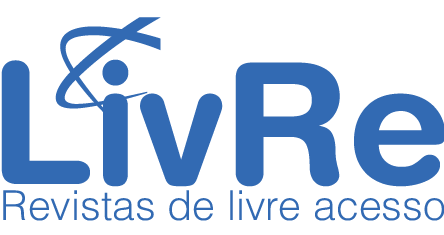Fontes de Indexação
| FONTES DE INDEXAÇÃO: | |
 |
EBSCO Information Services provides a complete and optimized research solution comprised of research databases, e-books and e-journals—all combined with the most powerful discovery service and management resources to support the information and collection development needs of libraries and other institutions and to maximize the search experience for researchers and other end users. |
 |
Latindex it is based on the cooperation of a network of institutions that operate in coordination for for the gathering and dissemination of relevant bibliographic information and editorial-quality criteria concerning the scientific serial publications produced in the region. |
| |
DOAJ Directory of open access journals The aim of the DOAJ is to increase the visibility and ease of use of open access scientific and scholarly journals, thereby promoting their increased usage and impact. |
 |
The portal gives access to the ISSN Register, the international database which contains key identification information about print and digital journals, magazines, newspapers, newsletters, and scholarly blogs and Open Access scholarly resources published in more than 100 countries. |
|
Spell ANPAD is a free repository of scientific papers and aims to provide access to scientific and technical information. Brazil. |
|
|
|
Electronic Journals Library (EM AVALIAÇÃO) The EZB contains 66698 journals which are accessible free of charge to anyone. Furthermore, the participating libraries provide their users access to the journals they subscribe to. |
 |
REDIB - Red Iberoamericana (EM AVALIAÇÃO) O REDIB é uma plataforma para agregação de conteúdo científico e acadêmico em formato eletrônico produzido no contexto ibero-americano, relacionado a ele em um sentido cultural e social mais amplo e geograficamente não restritivo. |
|
|
The Diadorim is an information service on authorizations for storage and access of articles of Brazilian journals in open access digital repositories. Part of the set of open access by the Brazilian Institute of Information in Science and Technologyservices. |
 |
at the request of its Member Organisations in 2002. The main aim of ERIH has been from its very beginnings to enhance global visibility of high quality research in the humanities published in academic journals in various European languages all over Europe. |
|
 |
Google Scholar provides a simple way to broadly search for scholarly literature. From one place, you can search across many disciplines and sources: articles, theses, books, abstracts and court opinions, from academic publishers, professional societies, online repositories, universities and other web sites. Google Scholar helps you find relevant work across the world of scholarly research. |
 |
O Portal brasileiro de publicações científicas em acesso aberto - oasisbr é um mecanismo de busca multidisciplinar que permite o acesso gratuito à produção científica de autores vinculados a universidades e institutos de pesquisa brasileiros. Por meio do oasisbr é possível também realizar buscas em fontes de informação portuguesas. |
 |
O LivRe é um catálogo de periódicos de livre acesso de todas as áreas do conhecimento. |
|
|
Matrix for the Analysis of Journals
MIAR collects data for the identification and analysis of scientific journals. If any ISSN is entered in the search box, the system will locate in which databases of the ones contemplated in the matrix the journal is indexed. |
|
|
OpenAIRE-Advance receives funding from the European Union's Horizon 2020 Research and Innovation programme under Grant Agreement No. 777541. The OpenAIRE Research Graph is one of the largest open scholarly record collections worldwide, key in fostering Open Science and establishing its practices in the daily research activities. Conceived as a public and transparent good, populated out of data sources trusted by scientists, the Graph aims at bringing discovery, monitoring, and assessment of science back in the hands of the scientific community. |













